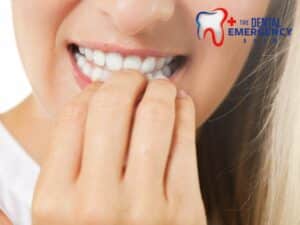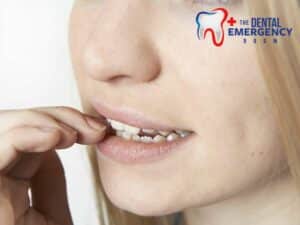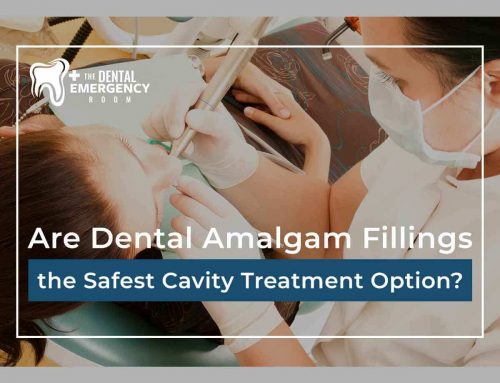The Hidden Dangers Of Nail Biting: Uncovering Its Impact On Health & Wellness

Physical Health Implications Of Nail Biting
Damage To teeth:
Dental health is profoundly affected by nail biting. Frequent nail biting can cause teeth to fracture from the continuous pressure, leading to larger cracks or breaks that may require extensive dental treatments or even dentures. Additionally, the abrasive nature of nails wears away the protective enamel on teeth, increasing vulnerability to decay and sensitivity. Biting can also create sharp edges that cut into the gums, allowing bacteria to enter and increase the risk of gum infections.
Oral Infections:
Bacteria from the fingers can transfer to the mouth, leading to various oral infections. Paronychia (infection around nails), an infection around the nails, can spread to the mouth, causing painful swellings and abscesses. Moreover, herpetic whitlow, a painful viral infection caused by the herpes simplex virus, can transfer between the mouth and fingers, creating a cycle of infection. This habit also introduces pathogens into the body, raising the risk of common colds, influenza, and other illnesses.
Digestive Problems:
Ingesting fingernail fragments can cause gastrointestinal issues. Sharp pieces may irritate the stomach lining, potentially leading to ulcers. Over time, accumulated fragments could obstruct the intestines, causing severe abdominal pain and requiring surgical intervention.
Psychological Effects of Nail Biting
Anxiety & Stress:
Nail biting is often a response to anxiety or stress, providing temporary relief but potentially exacerbating underlying issues. This relief can lead to more anxiety about the habit itself. Visible nail damage can cause self-consciousness, social withdrawal, and further impact mental health.
Behavioral Patterns:
Breaking the habit of nail biting can be challenging without external help. It often becomes an unconscious compulsion, so much so that individuals may not even realize they are doing it. Addressing the psychological triggers behind this behavior is crucial for breaking the habit.
Long-Term Effects of Chronic Nail Biting
Permanent Nail Injury:
Chronic nail biting can permanently damage the nails and nail beds. Continuous biting can cause abnormal growth or deformation, and in extreme cases, nails may not grow back at all. This can significantly affect the appearance and function of the hands.
Daily Life Impact:
The implications of nail biting extend to various areas of life. In professional settings, visible damage can negatively affect career prospects, while personal relationships may suffer due to feelings of shame or judgment based on the appearance of one’s nails and cuticles.
Effective Preventive Measures & Treatment Options For Nail Biting
Behavioral Interventions:

Physical Obstacles:
Physical barriers can discourage nail biting. Anti-biting polish, gloves, and adhesive bandages worn on the fingers can help deter the habit.
Techniques For Managing Stress:
Managing anxiety and stress can reduce nail biting. Mindfulness meditation and regular physical exercise can alleviate tension and provide a healthy outlet for nervous energy.
Professional Assistance:
For severe cases, professional help is recommended. Immediate issues like dental problems caused by nail biting can be addressed by emergency care dentists near Largo, FL, who provide treatments for infections, fractures, and other emergencies.
Kick The Habit: Embrace a Healthier Future Without Nail Biting
Nail biting is more than just a bad habit; its consequences affect both physical and psychological well-being. From damaged teeth and mouth sores to heightened anxiety and social embarrassment, the adverse effects make this behavior highly undesirable. Recognizing these outcomes is the first step toward combating them through behavioral changes, stress management techniques, and seeking necessary professional help.
If you are experiencing any dental issues related to nail biting or need advice on how to protect your teeth, please do not hesitate to contact us. Our Clearwater emergency care dentists are dedicated to helping you maintain optimal oral health and prevent the complications associated with nail biting.

Dental Emergency Room
1935 Drew Street,
Clearwater, Florida 33765
Columbus, OH 43205
Phone: 727-449-2424





Leave A Comment